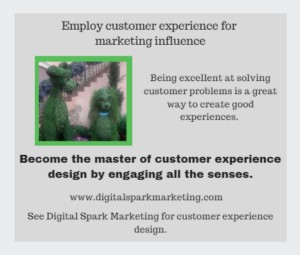When discussing your passion, it is important to understand the difference between passion and strength. That will help you recognize if you can live your passion.

Passion is “An intense desire or enthusiasm for something.” This means that although you may be passionate about something, you may not be good at doing it yourself. For example, I have a passion for Japanese anime. But I can’t draw it, animate it, or even understand it without subtitles. All I can do is appreciate it and feel strongly about it. This is one thing that separates a passion from strength.
Strength is a bit more complicated, but when applied to this question the best definition is probably “A good or beneficial quality or attribute of a person or thing.”
In other words, strength is more than just how you feel about something. It’s a quality that you have; you can use that. Many things can be seen as strengths depending on how you use them. In certain situations, being shy can be a strength. Being skilled at a certain activity can be a strength. And of course, there’s being physical, mentally, or spiritually strong.
In reality discovering passion is when:
You are not certain of succeeding, but still feel it’s worth failing at
You think less about what you will ‘become,’ and more about how best you can do
You do not care as much about being good at, as much as you care about learning until you become great
You do not stop after becoming great, but something you love learning forever
You are not doing it as an escape(like a hobby), but because you can immerse yourself in it
You do not feel a hurting stress after working hard, but a joyful exhaustion
Your happiness is not dependent on success but lies in the doing It is when success becomes a bonus side effect.
Are you continuously working to find what you love to do? Perhaps starting with your personal development? A very good idea these days … where change is the name of the game. Aim high. Explore. Stretch your boundaries. Let yourself fail some.
But be sure and put learning in your skill bag. All of these are useful to remember for growing knowledge of your enablers for success. Enablers for success that are essential for your personal and professional development and in doing what you love.
We are all aware of Steve Jobs Stanford commencement speech given in 2005, where he talks about doing what you love. It is a classic talk on this subject. He encourages his student audience to keep looking and don’t settle.
Jobs goes on to say as with all matters of the heart; you’ll know when you find it. Ah, but finding it.
To do something well, you have to like it. That idea is not exactly novel. We’ve got it down to four words: “Do what you love.” But it’s not enough just to tell people that. Doing what you love is complicated. And often unattainable for some.
I recently read an interesting book on the topic of how to find what you love to do. The book is by Cal Newport: So Good They Can’t Ignore You. The themes in Newport’s book are bound by a common thread: the importance of ability.
His thesis is that the things that do a great job great are rare and valuable. If you want them in your working life, you need something rare and valuable to offer in return. In other words, you need to be good at something before you can expect the job that you love.
Mastery by itself is not enough to guarantee your love and satisfaction: The many examples of well-respected but miserable workaholics support this claim. The main thread of the argument moves beyond the mere acquisition of useful skills and into the subtle art of investing career capital into the right types of working life traits.
The path to what you love – at least as it concerns what you do for a living – is more complicated than simply answering the classic question “What should I do with my life?”
So here is the kicker from this book: when it comes to creating work you love, following your passion is not particularly useful advice. In fact, it is seriously flawed. It not only fails to describe how most people end up with compelling careers but for many people, it can make things worse: leading to chronic job shifting and unrelenting angst.

“Follow your passion” might just be the worst possible advice. OK then, what should you do instead? Don’t follow your passion; rather, let it follow you in your quest to become so good that they can’t ignore you. Move your focus away from finding the right work, toward building your skills and expertise in what you do, and then eventually build a love for what you do.
If a young Steve Jobs had taken his advice and decided only to pursue work he loved, we would probably have been one of the Los Altos Zen Center’s most popular teachers. But he didn’t follow this simple advice. Apple Computer was decidedly not born out of passion, but instead was the result of a lucky break – a “small-time” scheme that unexpectedly took off. Probably works that way for a large percentage of us, doesn’t it?
Think of it in another way: The most likely predictor of someone seeing their work as a calling is the number of years spent on the job. The more experience they have, the more skills and expertise they have developed and the likely they are to love their work.
The happiest, most passionate employees are not those who followed their passion into a position, but instead, those who have been around long enough to become good at what they do.
Newport points out that motivation requires that you fulfill three basic psychological needs:
Autonomy: the feeling that you have control over your day, and that your actions are important
Competence: the feeling that you are good at what you do
Relatedness: the feeling of connection to other people He introduces the craftsman mindset which is based what you can offer to others.
This mindset asks you to leave behind self-centered concerns about whether your job is “just right,” and instead put your head down and plug away at getting great at what you do and contribute. Regardless of what you do for a living, approach your work like a true performer. Adopt the craftsman mindset first, and then the passion follows.
Put aside the question of whether your job is your true passion, and instead turn your focus toward becoming so good they can’t ignore you.
If you want to love what you do, abandon the passion mindset (“what can the world offer me?”) and instead adopt the craftsman mindset (“what can I offer the world?”).
Newport believes three traits define great work and contribution: creativity, impact, and control. These traits are rare. Most jobs don’t offer their employees great creativity, impact, or control over what they do and how they do it.
If you want something that’s both rare and valuable, you need something rare and valuable to offer in return.
Newport shares the story of when Steve Jobs walked into Byte Shop he was holding something that was rare and valuable: the circuit board for the Apple I, one of the more advanced personal computers in the fledging market at the time.
The money from selling a hundred units of that original design gave Jobs more control in his career, but to get even more valuable traits in his working life, he needed to increase the value of what he had to offer.

It’s at this point that Jobs’ ascent begins to accelerate. He takes on $250,000 in funding from Mark Markkula and works with Steve Wozniak to produce a new computer design that is unambiguously too good to be ignored.
There were plenty of other engineers in the Bay Area’s Homebrew Computer Club culture who could match Jobs’s and Wozniak’s technical skill, but Jobs had the insight to take on investment and to focus this technical energy toward producing a complete product.
The result was the Apple II. And Steve Jobs was now too good to ignore. The traits that define great work are rare and valuable. These rare and valuable skills are your career capital derived from a craftsman mindset.
Because of this, you don’t have to worry about whether you’ve found your calling – most any work can become the foundation for a compelling career. But certain jobs are better suited for applying career capital theory than others.
Most individuals who start as active professionals change their behavior and increase their performance for a limited time until they reach an acceptable level. Beyond this point, however, further improvements appear to be unpredictable Newport claims.
This learning is not done in isolation: You need to be constantly soliciting feedback from colleagues and professionals. Do projects where you’ll be forced to show your work to others. A good career mission is similar to a scientific breakthrough – it’s an innovation waiting to be discovered in the adjacent possible of your field.
If you want to identify a mission for your working life, therefore, you must first get to the cutting edge-the only place where these missions become visible.
To maximize your chances of success, you should deploy small, concrete experiments that return concrete feedback. Explore the specific avenues surrounding your general mission, looking for those with the highest likelihood of leading to outstanding results.
Comedian Steve Martin, in his brilliant memoir Born Standing Up, says that he is often asked about the secret to his incredible success. His best advice for people is, “Be so good they can’t ignore you.”
Live your passion … strength and passion don’t always line up
You can work hard to become stronger at your passion, but that doesn’t mean you’ll succeed. I could practice drawing all day, and as a result, I might become better at making anime. But I may never become good enough to call anime one of my strengths.
Looking at it the other way, you can try hard to feel passionate about your strengths, but some things are just “things that you’re good at” and nothing more. One of my strengths is retail sales and management…but I am not passionate about it. If I have to use that strength to earn money, I will. But my passions lie elsewhere.
The bottom line
Probably the most important motivator for happiness is that they feel we are working towards a meaningful goal. Some of the world’s most talented people forego monetary rewards to pursue careers in cutting-edge research.
Gary Hamel emphatically states that in order to compete companies must build a “community of purpose.” Jack Welch emphasizes the need to make values authentic. Both stress the need for leadership to provide meaningful goals and for employees to believe in them. Mere lip service will not do.
